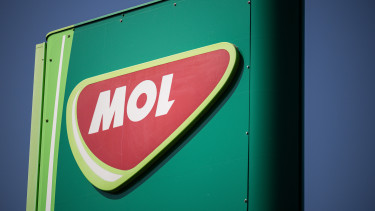Bosch: We need a broad technological approach to reach decarbonization goals

The Bosch Group is one of the world's largest industrial manufacturers, employing nearly half a million people globally. Its ownership structure, however, is quite unusual: the majority of the company is owned by the charitable foundation Robert Bosch Stiftung GmbH. Why has Bosch retained this structure to this day, instead of doing an IPO, like most large corporations for easier access to capital markets?
The reasoning behind the company's ownership structure dates back to Robert Bosch, the company's founder. At that time – and it hasn't changed since then – he aimed to maintain independence and minimize exposure to allow for long-term projects even if they did not offer immediate returns.
This is harder to achieve as a publicly traded company, where many stakeholders need to be convinced of long-term plans.

This structure has been in place since 1964, with 94% of the share capital held by Robert Bosch Stiftung GmbH, a charitable foundation. The majority of voting rights are managed by Robert Bosch Industrietreuhand KG, an industrial trust, which ensures the company remains privately held and aligned with the founder’s vision. Looking back at the results of recent decades and the technologies developed by Bosch, I think this strategy has been validated: perfecting diesel technology, safety innovations like anti-lock braking (ABS), traction control (ESP), and countless others took years to pay off but required significant resources.
The result is clear: today, no new car in Europe can be sold without these safety systems.
Bosch is a long-established, and solidly financed company with a wide range of products and services, valued by capital markets. So, our structure provides a strong basis – nevertheless, we need to be successful and profitable like any other company in the business world.
Bosch has a broad product and service portfolio, ranging from household appliances to industrial automation, from DIY products to developing and innovating electric mobility systems. Why has Bosch chosen this strategy, when most large companies typically focus on cleaning up their portfolio and keeping only the truly profitable businesses?
The Bosch Group’s broad portfolio, spanning Mobility, Industrial Technology, Consumer Goods, and Energy and Building Technology, allows us to leverage technology to address global trends like automation, electrification, digitalization, and sustainability.
This diversified approach enhances our innovation capacity and resilience.

This strategy evolved over decades, responding to market demands. There are technological links between these sectors, for example, different types of electric motors are key components in washing machines, cordless screwdrivers, robotics, and of course, mobility. On one hand, Bosch has always looked ahead, aiming to anticipate trends years or decades in advance.
On the other hand, the performance of certain industries tends to be cyclical.
Our broad portfolio allows us to balance these cycles, where strong performance in one division can offset weaker results elsewhere.
It's clear that Asian manufacturers are advancing both globally and in Europe, particularly in industrial and automotive production. They tend to work with in-house or Asian suppliers and rely less on large international companies. Are you seeing a shift in the market?
First, it's important to note that Bosch as a global technology and services company is also a sought-after partner for Asian and Chinese automotive manufacturers. We've been present in China for many decades, employing about 58,000 people there today, and have built many industrial relationships during this time. The competition is intensifying, but this is nothing new for us. We’ve seen the emergence of high-quality Japanese and later South Korean products in the past. Chinese manufacturers have now reached a technological level with which they can produce competitive products also for other markets like Europe.
We believe in fair competition because we believe it drives innovation.
There have been many unfavorable news about the electric car market in recent months, with far fewer sales than expected, affecting major manufacturers like Volkswagen. As part of cost-cutting measures, unprecedented factory closures may occur in Western Europe. What do you think, is this a temporary period, or can the trend prevail in the longer term?
This issue is influenced by many factors, from infrastructure shortages to car prices. It’s clear that charging accessibility needs to improve, and cars need to be produced at lower costs. Chinese manufacturers, for example, achieve this by using many standardized components in electric cars. This benefits economies of scale and can significantly reduce production costs. In Europe, standardized solutions in e-mobility are much less common; most of the car manufacturers develop their own technologies, making it hard to reduce costs.
The focus should be on the goal of drastically reducing CO2 emissions, rather than sticking to a single technology.
Nevertheless, we believe e-mobility will be successful in the future.

If it’s not entirely clear that battery electric vehicles are the future of mobility, what technology might dominate instead? Fuel cells, synthetic fuels, or something entirely new?
First, we fully believe in electric vehicles and their role in decarbonizing road traffic. We fully agree with the EU’s goal of drastically reducing CO2 emissions across the continent. However, it’s debatable whether regulations should dictate which technology the automotive industry should use to achieve this goal.
I don’t think this is the right approach.
We strongly believe in technology neutrality, recognizing that decarbonization can be achieved in various ways depending on which technology best meets certain mobility needs.
Battery electric vehicles and their drivetrains have undergone explosive development in recent years, which we’ve certainly been part of, as pioneers in some cases. However, we also continue to focus on other technologies such as for example hydrogen fuel cells. Soon, a hydrogen engine with Bosch technology will be launched in a commercial vehicle. Furthermore, we see great potential in hydrogen-based synthetic fuels. Bosch offers innovative solutions that reduce the CO2 emissions of petrol and diesel vehicles.
From our perspective, it does not make sense to ban certain technologies as this makes it harder to achieving decarbonization goals.

Autonomous driving is another area not to be overlooked. Our solutions contribute to a safer mobility of the future in which people travel in self-driving taxis or cover many kilometers on highways without human intervention. One thing is certain: the demand for personal mobility won’t disappear. People will still want access to cars, whether they are electric, hydrogen-powered, or run on synthetic fuels.
Sustainability has undoubtedly become a critical issue for large companies. Bosch is developing many innovations — industrial automation, electric drivetrains, etc. — that can directly or indirectly support these goals. What other efforts, perhaps less well-known to the public, is Bosch making in this area?
Sustainability and digitalization are extremely important to us. However, these trends didn’t just emerge for us in recent years; we recognized their significance decades ago.
Our claim „Invented for Life” expresses that we want to contribute to improving peoples’ quality of life – and also to helping conserve resources.
We have no intention of deviating from this technological philosophy. We have many highly energy-efficient products – not only in mobility but also household appliances or energy and building technology. We manufacture heat pumps and other equipment that can achieve significant CO2 savings at both household and industrial levels.
Another major trend affecting not just our operations but also our thousands of partners is our localization of supply chains. We follow a "local for local" approach, meaning we produce our products near their target markets. And we also aim to work with suppliers which are as close to us as possible - in this way, our entire supply chain naturally shortens.
This strategy contributes to sustainability goals as well as to supply security.
How much could the region and Hungary benefit from shorter supply chains? What are Bosch’s plans in the country?
Shortening supply chains could benefit Hungary in general. Bosch already plays a significant role in the country’s economy. We employ more than 18,300 associates across six sites, including one of our largest global mobility electronic parts factories in Hatvan and the largest Bosch power tool plant worldwide in Miskolc. Our Bosch Engineering Center Budapest employs more than 3,900 associates, making it the second-largest innovation center in Europe.
We see huge potential in the region, and Hungary is a very attractive destination for us.
The workforce is well-trained, the business environment is competitive, and I see that Hungarian professionals' innovative skills and problem-solving abilities are combined with strong career motivation, leading to outstanding performances both individually and in teams.
SPONSORED CONTENT --- The publication of this article was sponsored by Bosch
Cover photo: Portfolio - Ákos Kaiser
A cikk elkészítésében a magyar nyelvre optimalizált Alrite online diktáló és videó feliratozó alkalmazás támogatta a munkánkat.










